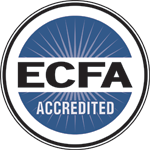Improving Quality of Life Through
Continuing Education and Personal Growth
During our time together today, you can expect to learn:
- How to know how much is enough
- How to be a good steward/manager of finances and establish priorities
- How to get out of debt and stay out
- How to “get rich” slowly
- How to find money you never knew you had
If you could boil down all of your questions and concerns about finances into just one question, what would it be?
A Few Thoughts On Money
- Thriftiness is a wonderful thing. And who doesn’t wish his ancestors had practiced it more?
- “If you wish to succeed in life, make perseverance your best friend, experience your wise counselor, caution your elder brother, and hope your guardian genius.” – Joseph Addison
- A successful person is one who works hard his entire life to get rich, then spends the rest of his life sitting on the porch of a sanitarium watching the healthy poor go by.
- How to retire with $1,000,000: hard work, strict attention to duty, absolute honesty, economical living…and the death of a rich relative who leaves you $1,000,000.
- We should live and learn. But by the time we’ve learned, it’s usually too late to live.
- Too often the cheerful giver is cheerful only because he’s gotten away with giving as little as possible.
- “God has given us two hands – one to receive with and the other to give with. We are not cisterns made for hoarding, we are channels made for sharing. If we fail to fulfill this divine duty and privilege, we have missed the meaning of Christianity.” – Billy Graham
- Sometimes it seems your current financial status is all based on liquid assets. In other words, your finances are all going down the drain.
- I was always warned that someday I would squander my money recklessly, but I never thought it would be on gasoline, coffee, and postage stamps.
- “Before you can score, you must first have a goal.” – Greek proverb
- Live each day as if it were your last. Someday you will be right.
- It’s tough to plan for the future when you are so busy working to fix the things that you did yesterday.
- The average person’s goal is to be able to afford what he is spending.
- “A generous man devises generous things, and by generosity he will stand.” – Isaiah 32:8
- Money isn’t everything. You can have just as much fun with $900,000 as you can with a million.
- “There is no magic in little plans.” – Henrietta Mears
- I figured out a way to put off paying the bills. I filled out one of those change of address cards at the post office and then did not move.
- Whatever you possess in the world will be found at the day of your death to belong to someone else, but what you are will be yours forever.
- A credit card is what you use today to buy what you can’t afford tomorrow while you’re still paying for yesterday.
- I’ve put all those little monthly payments into one large monthly payment that I still can’t meet.
- A wise person will desire no more than he may get justly, use soberly, distribute cheerfully, and leave contentedly.
- I can’t live on what I am earning. I can’t even live on what I am spending.
- Money isn’t that important. After all, Henry Ford had millions and he never owned a Mercedes.
- A dollar goes farther these days. You can carry it around for a week before you can find anything that you can buy with it.
- It’s easy to meet expenses. Everywhere I go, there they are.
- “Sixteen out of 38 of Christ’s parables deal with money; more is said in the New Testament about money than heaven and hell combined; five times more is said about money than prayer; and while there are 500 plus verses on both prayer and faith, there are over 2,000 verses dealing with money and possessions.” – John MacArthur, Jr.
Five Steps to Maximizing Your Personal Income
Step 1: Understanding How Much Is Enough
- What is your personal net worth?
- How will people respond at your funeral?
- What goals do you wish to accomplish in life?
- How do your finances fit into these goals?
- How much do you REALLY need to survive?
Step 2: Understanding How To Effectively Manage Your Financial Resources and Establish Financial Priorities
- What is the purpose of money?
- Why do you spend money the way you do?
- What is financial intimacy?
- What role does a budget play in your life?
- What should your monthly budget look like?
Step 3: How To Get Out Of Debt
- Reduce living expenses
- Reduce debt
- Reduce taxes
- Reduce investment losses
Step 4: Getting Rich – But Doing It Slowly
- Avoid debt
- Consider opportunity cost
- Compounding – The Rule of 72
- Pitfalls to getting rich slowly
Step 5: Discovering Money In New Ways
Buy used goods Rent items
Shop garage sales Comparison shop
Join a membership warehouse Pay cash
Wait Use coupons
Stockpile anticipated needs Negotiate
Set up a babysitting co-op Pay promptly
Spend paper money only Don’t always shop price
Donnelly Communications
Personal Budgeting Worksheet
Please complete the following form prior to meeting with Lacy Peacock or Chris Hobgood on Tuesday, June 7 or Wednesday, June 8. It will help you get the most from your time with the corporate chaplain. Please see the example below.
| Expense | Total Amount Owed | Minimum Payment | Interest Rate |
| Chase Bank Visa | 2377.48 | 64.00 | 22.9% |
Today we will be formulating a personal budget based on best practices. All financial decisions are the responsibility of the Donnelly Communications employee. Your chaplain is here with information, but will not be acting in the capacity of a financial advisor.
Below is an explanation of what each category includes:
- Giving (10%) is any gifts to others in need. Studies show that giving helps you feel more hopeful, optimistic and empowered to face the struggles present in your own life.
- Housing (25%) includes expenses related to your home, other than utilities. Rent, mortgage, insurance, taxes, HOA fees, maintenance, repairs, etc.
- Utilities (7%) includes phone (land and cell lines), cable, satellite, water, electric, gas, sewer, internet, security system, etc.
- Food (13%) includes items purchased at the grocery store for cooking at home. It does not include eating out at restaurants. That is included in the entertainment category.
- Transportation (10%) includes any expenses related to transportation. Car payments, rental cars, Uber, Lyft, cabs, MARTA, car insurance, gas, maintenance and repairs, taxes, parking, tolls, etc.
- Clothing (5%) includes buying clothing, laundry expenses, drying cleaning, tailoring and alterations, etc.
- Medical (4%) includes health insurance premiums, copays, prescriptions, doctor visits, surgeries, physical therapy, over the counter medications, etc.
- Personal (5%) includes cleaning supplies, toiletries, cosmetics, hygiene items, etc.
- Recreation (6%) includes anything that you do for fun, including eating out in restaurants, movies, Netflix, Hulu, nightclubs, bars, concerts, etc.
- Debt Elimination (5%) is money spent to pay off all debt, including student loans, personal loans, credit cards, pay day loans, title loans, pawns, etc.
- Savings (10%) is money set aside for large purchases to avoid incurring credit card debt, major medical expenses, home repairs, car repairs, etc.
|
Expense Category |
Percent of Income |
Dollar Amount, Based on Monthly Income of $1,000
|
|
Giving
|
10% __________ |
$100 __________ |
|
Housing
|
25% __________ |
$250 __________ |
|
Utilities
|
7% __________ |
$70 __________ |
|
Food
|
13% __________ |
$130 __________ |
|
Transportation
|
10% __________ |
$100 __________ |
|
Clothing
|
5% __________ |
$50 __________ |
|
Medical
|
4% __________ |
$40 __________ |
|
Personal
|
5% __________ |
$50 __________ |
|
Recreation
|
6% __________ |
$60 __________ |
|
Debt Elimination
|
5% __________ |
$50 __________ |
|
Savings
|
10% __________ |
$10 __________ |
|
TOTALS
|
100% __________ |
$1000 __________ |




